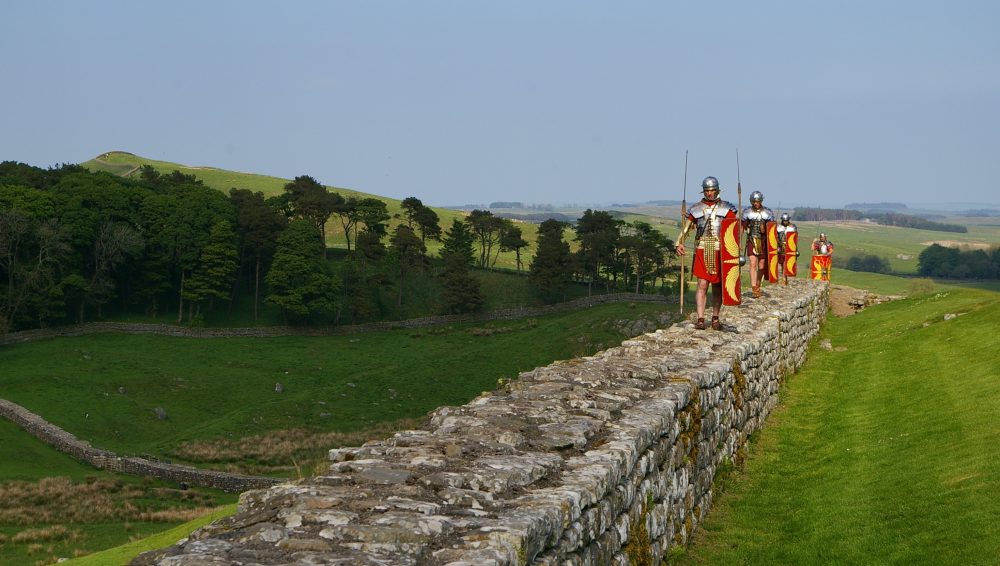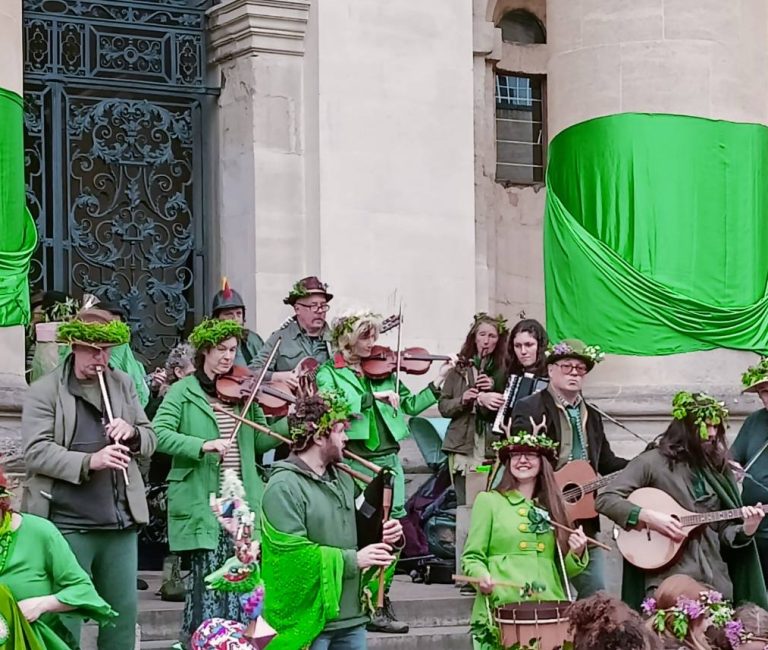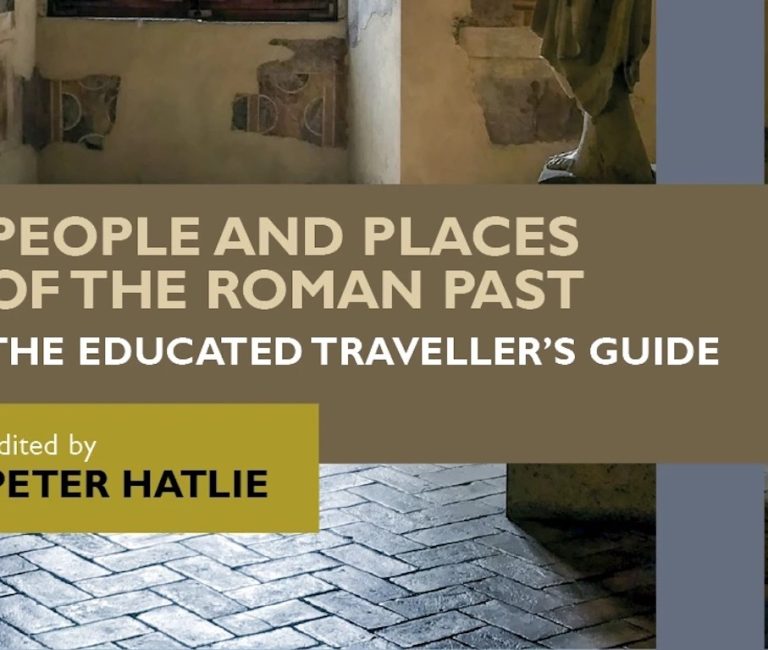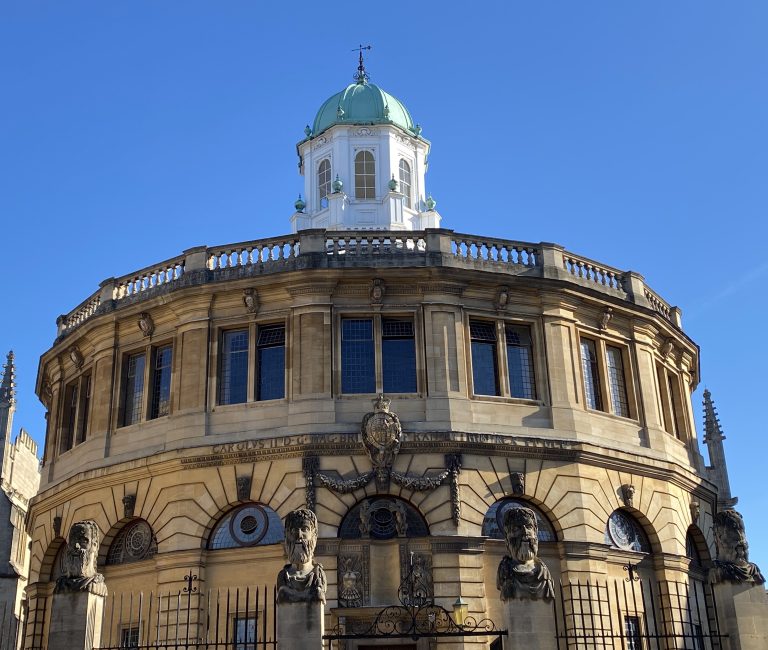At the time of Caesar’s birth (100 BC) Rome was still a Republic and the seeds of empire were only beginning. The senators ruled, motivated by the hope of becoming either a consul or a praetor, the two senior positions which carried imperium, the right to command an army. With these positions it was possible to conquer new territories and to gain the ‘everlasting’ prestige of a triumph from the senate. But class discontent was increased, and civil conflict beckoned. The sullen ashes of unbounded privilege brought new populist powers to bear – men such as Sulla, Cinna and Pompey. By their military strength dictators came to republican Rome. Civil war loomed.
César entre los Celtas. Un repaso a las memorias del Emperador Julio César, sus escritos en La Guerra de las Galias, y la compleja red de historia, intriga, diferencias culturales y propósitos comunes, exaltaciones y omisiones en la presencia romana y su legado en la actual Gran Bretaña.
From 59 to 50 BC Gaius Julius Caesar campaigned against the Celtic tribes of Gaul and Britain. From the active dust of conquest came his memoirs, The Gallic Wars. They are political, ambitious, and questionable – yet utterly tantalising and valuable. In them the political and military life of the Celts emerge. There is intrigue, insight, and omission.

Caesar had been born into a very old patrician family, the Julii. The family was not wealthy, ample work was required to achieve a successful political career; but by 62 BC he had achieved a Praetorship.
The senate now considered Caesar to be an ambitious and dangerous man and feared another Sulla. They deprived Caesar of a triumph even after several military victories as governor of Further Spain between 61 to 60 BC. Yet in the following year Caesar had manoeuvred himself to election as a consul. In the cat and mouse game that followed the senate passed a law ordering the consuls for 59 BC (when they had finished their year in office) to be appointed not as provincial governors but to serve in Italy as ‘commissioners of forest and cattle’.
Unacceptable of course. The militant and the wealthy of Rome – Pompey and Crassus – were Caesar’s counter to the senate’s Machiavellian moves. The powerful ‘First Triumvirate’ emerged, and Caesar’s enemies withdrew.
In that fabled year of 59 BC, he appointed himself governor of Cisalpine Gaul for five years. Soon after he received the province of Narbonese Gaul when its governorship unexpectedly became vacant. To him, providence had hypostatised his fate, the gods had set their neo-Odyssean pieces to play. He was to be their willing vessel.
Then, one of the major Celtic groupings (the Aedui) called on Rome for help against invading Germans and their rivals the Sequani. A dizzying sequence of events began, and it may be that Caesar felt part deified already. Opportunity cometh they say.

The gods were giving much. His memoirs reveal the political motivation for what came next, for they were communications with his fellow Romans, suitable for public image and the strengthening of Julian interests.
In them the calculating Caesar sets to work, a subtly woven self-hero. The two main factions of Gaul – the Aedui and the Sequani – are at war. The latter, by allying with the invading Germans, have gained the dominant position. In desperation have the Aedui called for help from Rome. Simultaneously, an invading migration of Helvitti is stopped by Caesar from entering the Province (Narbonese Gaul) and is parried toward the Aedui. Fate could perhaps have done little more for Caesar. Now he will enter Gaul and bring to her Roman order.
Justification and fate lie often in Caesar’s thought. In Book VII of the Gallic Wars, he accounts a late rebellion of the Aedui. The Aedui, “without waiting for confirmation,” imbibe rumour as fact and, “carried away by anger and impetuosity – the most striking characteristic of the Gallic race,” slaughter an entire population of Romans. In contrast ‘civilized’ Rome brings order.
Still, some of the other foot is present. Earlier in Book I Caesar has adulated Dumnorix, the estranged brother of Diviciacus – the Aeduan noble who had asked for Rome’s help against the Sequani. Dumnorix is “…an ambitious adventurer”, seized with the desire to oppose Caesar for personal glory and ambition. In truth it was more likely that he was the coldly calculating leader of a faction opposed, in the national interest, to the pro-Roman policy of the Aeduan nobles. That is, in an assured manner, Caesar has little compunction in exaggerating the opposition he faced.
Even so, there is a certain intimidation felt in his description of the Celtic fortifications serving as military and political centres, that cannot have been mere fancy. Towards them Caesar positions himself as ruthlessly employing Rome’s military technology. In the well-known rebellion against Caesar in 52 BC, led by Vercingetorix, king of the Averni, most of the Gallic tribes joined. In the final confrontation Vercingetorix retired to his hill-fortress at Alesia – one of the main political and military centres in Gaul.
Caesar is meticulous in response, building not one but two siege walls around Alesia. The inner wall was fourteen kilometres around and designed to keep the Gauls inside. The outer wall was twenty kilometres around and designed to protect the besiegers from any attacks by a relieving army. Against such cunning there was no answer. Vercingetorix had even sought to abandon the Celtic approach of holding and defending forts by adopting a scorched earth policy, but the members of his coalition demanded pitched battle and defence of valuable forts. By the end (Book VII), “The besieged Gauls despaired at last of penetrating the huge fortifications…and attempted to storm one of the steep ascents.”

In their defeat comes our education. Caesar describes tribes bound together more by common speech, customs and religion than by well-defined central governments. Each tribe has its king or chief, but it is the division into a class system that most intrigues. Druids (educated priests from noble families) vied with Equites (warrior nobles) and consorted with Plebeians (commoners). Yet, the Druids, whilst immensely powerful and respected, appear to make no concerted effort to resist Caesar politically. Their reasons were mystically inscrutable perhaps.
The main political and military resistance to Caesar came from various equites. Towards them Caesar brandishes hyperbolic touch and touché.
Caesar smiles at us, his gaze strong – challenging. To exaggerate the losses or hardiness of his enemies is only what should be done. Man is a political animal sayeth Aristotle. Caesar too. It is pragmatic and wise to be Machiavellian. In such vein (Book I), Caesar commands belief, “The Belgians are the most courageous of all the Gallic tribes, because they are furthest away from the civilizing influence of the Province. …They are also nearest to the Germans living across the Rhine, with whom they are constantly at war.” Temerarious. Elsewhere, Caesar acclaims the Nervii to have been all but annihilated in battle during 57 BC – yet only a few years later (54 BC) the Nervii are surrounding Cicero’s camp near the Sambre with thousands of troops and are using Roman techniques for besieging the camp.
The historian James Sabben-Clare, ever the Wykehamist, punctures the grand old one somewhat: “His continuous victories against these reputedly formidable opponents finally won for him the acknowledgement from Rome that he wanted.” (Caesar & Roman Politics, p.64)
If tactic it was, it worked. This Caesar, Kaiser and Tsar of the 1st Century BC next encounters the Celts of Britain. The Britons have been aiding the Gauls in their struggle reports Caesar, but the real motive seems to be more glory; and perhaps to gather from the reputed wealth of Britain, with its tin mines. Two expeditions are made in 55 and 54 BC respectively. Book IV reports, “In chariot fighting the Britons begin by driving all over the field hurling javelins. …Then after making their way between the squadrons of their own cavalry, they jump down from the chariots and engage on foot. In the meantime, their charioteers retire a short distance from the battle and place the chariots in such a position that their masters…have an easy means of retreat to their own lines.” Caesar is bemused, the Romans considered chariots obsolete, and even the Celts of Gaul had abandoned them many years earlier in favour of cavalry. Yet the Britons are an island people and island people do seem to want to do as they do. Almost despite their idiosyncrasy, Caesar is impressed. The efficiency and tactics of their chariots is notable after all.
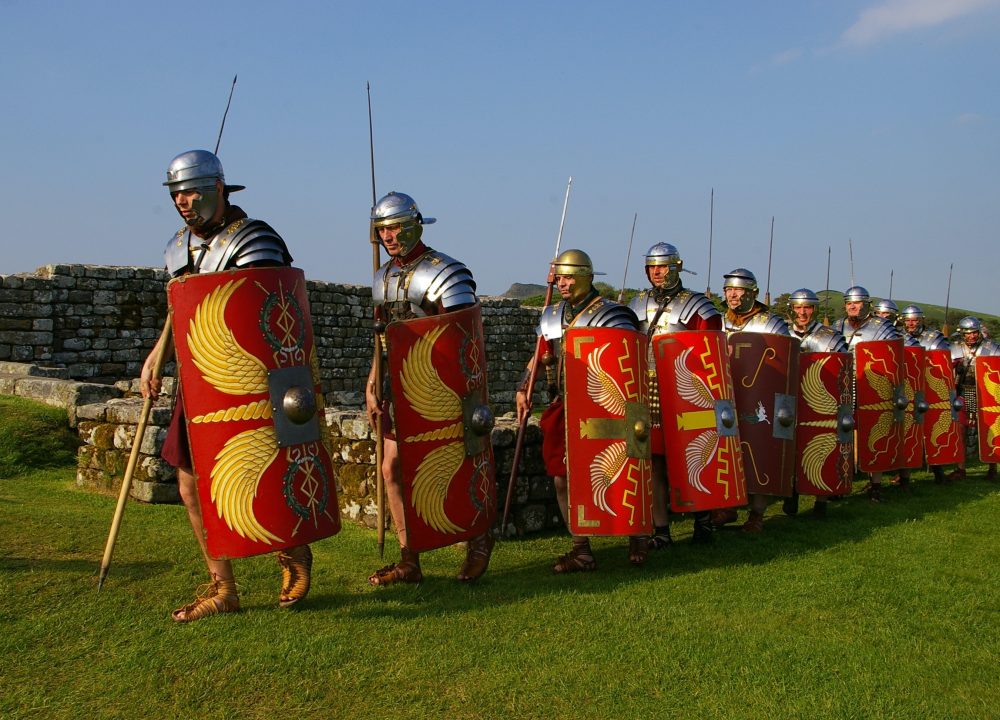
Even so, Caesar carefully massages republican sentiment. The British tribes are emphatically monarchists, with a high king over the tribes during their emergency. The thrusting cut of Caesar’s will is met by high king Cassivelauness. Yet when Caesar begins to defeat his foes, he reports of tribes who seek peace with him despite such allegiance. So much for monarchy. The lesson seems clear: the Republic can bring peace and her peace should be embraced and harnessed by the great and the good in Rome.
Do counterpoint Celtic voices speak? The historian Graham Robb has made a convincing account that they do, with seemingly obscure markers emerging in his work The Ancient Paths. Geoffrey of Monmouth’s Historia Regum Britanniae stands as somewhat a medieval precursor to Robb’s achievement, though less successfully. It purports to give a translation of the Celtic British account of Caesar’s two expeditions to Britain.
Historians generally give little credence given its late provenance, but perhaps ‘latterness’ has its own merit. Geoffrey talks of ‘Kasswallawn’s’ intelligence gatherers and of assured tactics, acting as a latter-day Celtic voice wishing to defend ancestors of old. Yet even in Geoffrey’s account they are prone to being outwitted. At one point the Britons assume that the Romans have fled because Roman ships are no longer beached on the shore. There is veritas here: in truth Roman engineering ability (Caesar states that he ordered the ships moved inland) would have mystified the Brythonic Celts. Literarily their mystification works as a presage of the 43 AD event still approaching.
Even so, Caesar’s efforts in Britain were abandoned in 54 BC. It had been an impressive venture, but the need to get back to his affairs in Gaul and Rome beckoned – and he had not found the area to be as rich as he had supposed. The tin mines were further west for one. In Gaul there was Vercingetorix to face, a final rebellion to quell. More vital was Caesar’s ongoing struggle with the senate, the crossing of the Rubicon, the die being cast. All that was to come. In the final forging of republic into empire Britain would remain independent but would come under Roman imperial rule in due course, a descendent of Caesar at the vanguard (the Julio-Claudian invasion of 43 AD).
So, what should we think? Caesar’s presentation of the military and political life of the Celts is one of the instability and inconsistency of the political forces at work among the Celtic tribes. His examination of their military life is characterized by generalizations about their impulsiveness in battle and their fickleness in politics.
We must be sceptical of such Caesarean propaganda and its justification for conquest. Yet Caesar will often extol the Celts bravery in battle and the great difficulties in defeating their armies.
If indeed it is to give the greater prestige and glory to his victories, they are also vivid images of the Celtic warrior ethos, and thus have value. Caesar’s memoirs are certainly characterized by the influence of Roman politics and the desire to further his position through his campaigns in Gaul. Yet, he must also believe that Roman peace and order is justification for his entry into Gaul. His is a mind legal, imaginative and expansionist. The Celts, impressive in knowledge themselves (per The Ancient Paths by historian Graham Robb), are perhaps the scientific aboriginality of Europe brought face to face with a culture of iron, before which even they must crumble and change.


